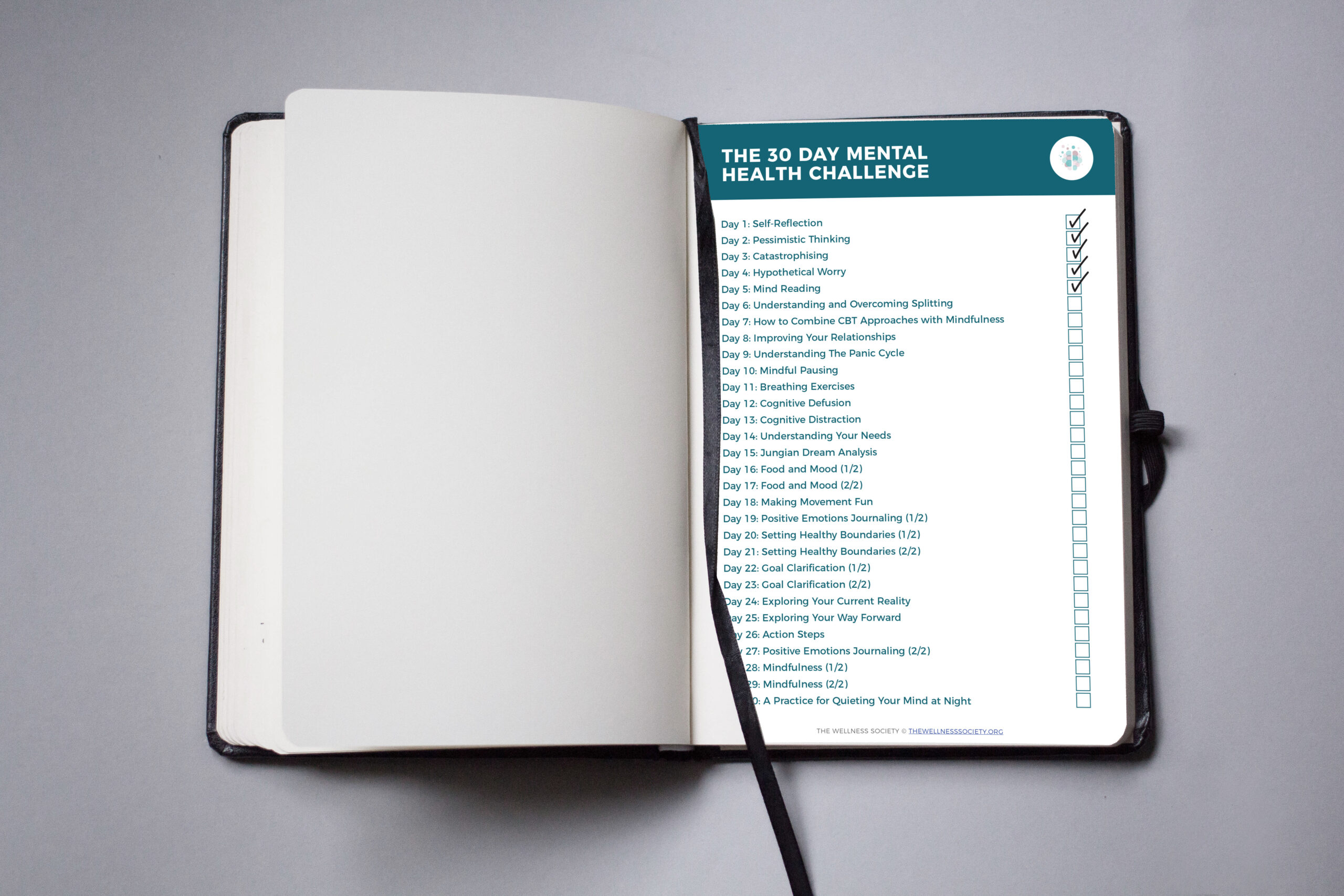Relationships can be challenging for many people, but for those with a fearful avoidant attachment style, it's especially daunting.
If you're a fearful avoidant, you might find yourself experiencing intense emotions, feeling urges to run away, and creating a push-pull dynamic in your relationships.
The good news is that with awareness and effort, it's entirely possible to change these patterns. Want to know how to cultivate healthier, more fulfilling relationships? Keep reading to learn seven specific tips.
1. Notice Idealization and Devaluation Cycles
Fearful avoidants often experience strong fluctuations in how they perceive their partners.
At times, they place their partner on a pedestal, viewing them as perfect. However, this idealization can be quickly followed by devaluation when the partner does something disappointing or triggers a fear of rejection. The idealization and devaluation cycle leads to rollercoaster emotions – being mindful of these patterns is crucial.
Instead of reacting impulsively when you feel disappointed or threatened, take a step back and ask yourself:
- What’s the bigger picture?
- Am I projecting excessively high standards onto this person?
- What can I do to rekindle my feelings of warmth?
Cultivating balanced thinking allows you to nurture the relationship rather than constantly questioning it.
2. Challenge Catastrophising
Fearful avoidants tend to be hypervigilant in relationships, always on the lookout for potential signs of betrayal, rejection, or incompatibility.
While it’s important to recognise genuine red flags, it's equally essential to avoid blowing them out of proportion, a.k.a., catastrophising.
Minor issues can sometimes be interpreted as signs of a deeper problem when, in reality, they’re just normal parts of any relationship.
Catastrophising Examples
- Overanalysing small disagreements. After a minor argument about household chores or plans, a fearful avoidant might worry that the disagreement signifies a fundamental incompatibility or that it threatens the stability of the relationship. In fact, it's a normal part of any partnership.
- Reading too much into body language. If a partner seems distracted during a conversation, a fearful avoidant might interpret this as a sign that the partner is losing interest in the relationship, rather than considering that they might just be having an off day.
- Excessive worry over social media. If a partner follows a new account, a fearful avoidant might worry that this indicates a lack of commitment or an interest in someone else, even though it might simply be an innocent social interaction.
- Misunderstanding a partner’s need for space. When a partner needs some alone time, a fearful avoidant might interpret this as a sign of wanting to distance themselves, instead of understanding it as a normal need.
How to Challenge Catastrophising
To challenge catastrophising, ask yourself:
- What's the bigger picture? (This prompt is helpful for various unhelpful thinking patterns.)
- What might my partner be experiencing?
- What would an outsider perspective be?
Taking time to reflect and discuss the situation with your partner can also prevent misunderstandings from escalating.
3. Recognise Perfectionism
Many fearful avoidants tend to be perfectionists.
This perfectionism is applied both to themselves and their expectations of others.
This can create unrealistic standards for their partner and the relationship, causing disappointment when those standards aren’t met.
Perfectionism can stem from a fear of vulnerability or failure. You might feel that if the relationship isn’t perfect, it’ll fail. This leads to the constant urge to control and correct things.
It's essential to remember that no one's perfect. Striving for perfection can prevent you from enjoying the genuine, albeit imperfect, connection that you seek.
Practice letting go of rigid expectations. Remind yourself that relationships are a work in progress, constantly evolving. Accepting imperfections can pave the way for a deeper connection with your partner.
4. Remember That People Make Mistakes
Relating to perfectionism – remember that people make mistakes.
No relationship is without its ups and downs. Healthy relationships involve an ongoing conflict repair cycle.
Fearful avoidants often struggle with forgiving themselves and others, leading to tension and emotional distance.
Instead of viewing mistakes as dealbreakers or signs of deeper issues, recognise that often, problems can be solved through communication and mutual effort.
In fact, handling problems often makes couples stronger. It gives you the opportunity to deepen your understanding of each other, build trust, and develop more effective communication skills.
It’s so important to communicate and let go of grudges.
Try to approach conflicts from a place of curiosity rather than judgement. How can you work together to resolve the issue? By understanding that mistakes are a normal part of being human, you open the door to growth, forgiveness, and deeper connection.
5. If You Feel Emotionally Disconnected, Communicate
One of the most common issues for fearful avoidants is feeling emotionally disconnected or unfulfilled in relationships.
Instead of retreating into your own world when this happens, it’s vital to address these feelings with your partner.
Although it can be tempting to withdraw, bottling up your feelings will only make things worse in the long run. When you notice yourself feeling emotionally disconnected, try to have an honest conversation about it.
This could sound like:
"I’m feeling a bit emotionally distant right now, and I want us to feel closer. Can we talk about how we could reconnect?"6. Developing Trust Through Vulnerability
While it can be incredibly difficult for fearful avoidants to open up, doing so is key to building trust.
This doesn’t mean you have to dive headfirst into deep emotional sharing right away, but taking small steps toward vulnerability can gradually help you feel more comfortable.
For example, fearful avoidants often struggle with expressing their needs because they fear rejection or conflict.
So, instead of assuming your partner will react negatively, practice vulnerability by sharing. This gives them the chance to understand and support you, building trust.
Start small by voicing minor needs or concerns, then work toward more significant discussions as your confidence grows.
The more you practice opening up, the easier it becomes to form secure connections.
7. Tackle Rumination
Fearful avoidants tend to be hypervigilant to threats, which may lead to excessive rumination.
There are plenty of therapy techniques you can use to address this. Tools from cognitive behavioural therapy (CBT), acceptance and commitment therapy (ACT), mindfulness-based cognitive therapy (MBCT), and more.
The Thinking Slow Method inside The Mental Wellbeing Toolkit adopts a trauma-informed approach and integrative framework to help you reduce rumination.
It outlines the many types of unhelpful thoughts and stories that fearful avoidants experience.
You’ll also learn how to address chronic shame – the persistent feeling of being fundamentally flawed or unworthy. Chronic shame can impact various aspects of your life, including your relationships, self-esteem, and overall mental wellbeing. Understanding how to respond to and manage this challenging emotion can be truly life-changing.
Summary
Being a fearful avoidant doesn’t mean you're destined for unfulfilling relationships. Your sensitivity is a gift – it allows you to feel deeply, understand others on a profound level, and care in ways that truly matter. While the mix of craving intimacy and fearing it can often feel overwhelming, it's possible to develop healthier patterns of connection. With time, effort, and self-awareness, you can create happier, more secure relationships.
Be kind to yourself.
Trauma-Informed Tools to Accelerate Your Mental Health Journey
Our self-guided program includes tools from CBT, DBT, ACT and more, so you can discover what works best for you. Check out The Mental Wellbeing Toolkit today – it's "like 10 therapy sessions in one."
The 30 Day Mental Health Challenge is designed to solidify and build on learning from the toolkit, and is especially relevant to people who have experienced relational trauma.
By the end of this experience, you’ll have a toolkit of strategies to improve your mental health, achieve your goals, and live a more fulfilled life.
Author





